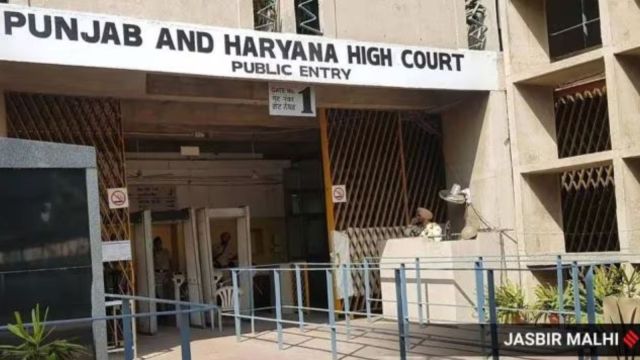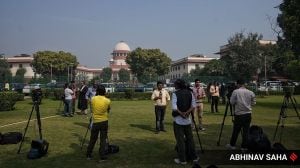Punjab moves HC against releasing water to Haryana
Says BBMB and Centre misled court; adds Haryana has exhausted quota and repair work is over
 In its application, Punjab has accused the Bhakra Beas Management Board (BBMB), Haryana and the Centre of “selective disclosure of facts” before the court (Archive)
In its application, Punjab has accused the Bhakra Beas Management Board (BBMB), Haryana and the Centre of “selective disclosure of facts” before the court (Archive)The Punjab government Monday moved the Punjab and Haryana High Court seeking recall or modification of its May 6, which directed it to abide by the decision of a May 2 meeting conducted by Union Home Secretary, thereby paving the way for the release of 4,500 cusecs of extra water to Haryana for eight days. Punjab, in its petition, has also challenged the May 2 directive by the Union Home Secretary as ‟being beyond jurisdiction” and based on “material misrepresentation and concealment” of facts.
In its application, Punjab has accused the Bhakra Beas Management Board (BBMB), Haryana and the Centre of “selective disclosure of facts” before the court. It argues that Direction No. (iii) of the May 6 HC order, which mandates Punjab to comply with the decision to release an additional 4,500 cusecs of water to Haryana for eight days was issued without a full and accurate picture, particularly regarding who had the authority to decide the water release.
“The State of Haryana has already exhausted its quota… and is overdrawing the water up to 105% of its agreed quota, i.e. drawing 3.13 MAF against their agreed share of 2.987 MAF,” the petition states, adding that Punjab had nevertheless agreed to release 4,000 cusecs daily to the neighbouring state “on humanitarian grounds”.
According to the petition, a BBMB technical committee meeting on April 23 had noted Haryana’s request, but no consensus was reached. Punjab’s chief engineer had asserted that “Haryana should not be allowed releases beyond their share quota and stated that earlier they had bilaterally decided release of 4,000 cusecs for drinking water requirements”.
Punjab contends that even though the BBMB referred the matter to the Centre under Rule 7 of its own rules on April 29, it went on to issue an order on April 30 allowing the additional release — “in a completely illegal and arbitrary manner and without there being any adjudication by the Competent Authority.”
The state has also objected to the May 2 meeting chaired by the Union Home Secretary, which reiterated the release. “The Union Home Secretary was not the appropriate competent authority having jurisdiction to adjudicate as per Rule 7 of the BBMB Rules 1974,” the petition argues, stating that the only authorised official is the Union power secretary — a position acknowledged by the Centre on May 9.
Punjab further claims the High Court was misled into believing that a formal central decision had been made. “During the course of arguments on May 6, this Hon’ble Court was made to believe that the Centre has decided the issue for release of additional 4500 cusecs of water on 02.05.2025 and a press note was shown to this Hon’ble Court.” The petition adds that no signed minutes of the meeting existed until a “Record of Discussion” was produced on May 9, which had not been circulated or signed earlier.
“Haryana stated during the proceedings…that the meeting…was called by the Union Home Secretary as it pertained to the law and order situation. This further shows that the meeting could not have decided the issue of water allocation especially when it stood statutorily referred to Ministry of Power,” it further added.
The state also argues that the situation prompting Haryana’s request has since changed. “The demand also was only from April 24 to May 1… the decision dated 02.05.2025 has already run its life and the same cannot be ordered to be complied with now.” The Western Jamuna Canal repair work is complete and the eight-day period for which the water was sought ended on May 10, it adds.
The petition points to a May 8 directive from the BBMB chairman threatening contempt action if the water release was not carried out. “The court ordered for release of 8,500 cusecs for the Haryana State be implemented and laxity on part of any officer/official will be treated as the contempt of court,” the BBMB chairman reportedly stated — a position Punjab says misrepresents the actual court order.
Punjab has urged the court to stay and recall the May 6 directive, arguing that any disagreement over inter-state water release amounts to a “water dispute” that can only be decided by a Water Tribunal under the Inter-State River Water Disputes Act, 1956. “Any deviation to release water in absence of such consent would constitute a water dispute and can only be decided by constituting a Water Tribunal under 1956 Act and not otherwise,” it says.












